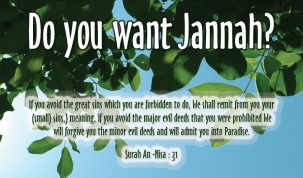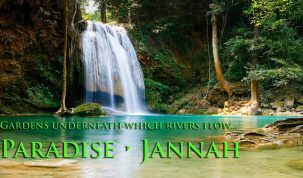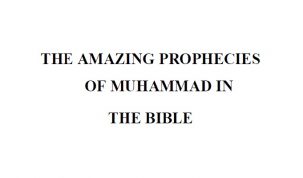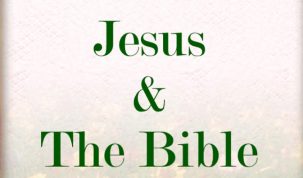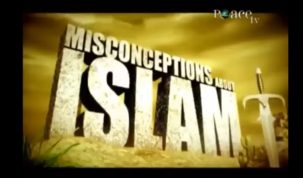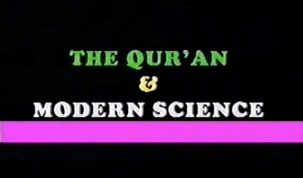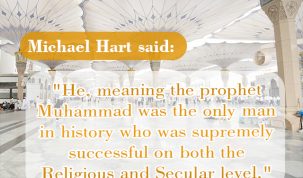Can we find an explanation of the great universe? Is there any convincing interpretation of the secret of existence? We realize that no family can function properly without a responsible head, that no city can prosperously exist without sound administration, and that no state can survive without a chief of some kind. We also realize that nothing comes into being on its own. Moreover, we observe that the universe exists and functions in the most orderly manner, and that it has survived for hundreds of thousands of years. Can we, then, say that all this is accidental and haphazard? Or can we attribute the existence of man and the whole world to mere chance?
Yet man represents only a very small portion of the great universe. And if he can make plans and appreciate the merits of planning, then his own existence and the survival of the universe must also be based on a planned policy. This means that there is a Designing Will behind our material existence, and that there is a Unique Mind in the world to bring things into being and keep them moving in order. The marvelous wonders of our world and the secrets of life are too great to be but the product of random accident or mere chance.
In the world, then, there must be a Great Force in action to keep everything in order. In the beautiful nature there must be a Great Artist who creates the most charming pieces of art and produces everything for a special purpose in life.
The true believers and deeply enlightened people recognize this Artist and call Him Allah or God. They call Him God because He is the Creator and the Chief Architect of the world, the Originator of life and the Provider of all things in existence. He is not a man because no man can create or make another man. He is neither an idol nor is He a statue of any kind because none of these things can make itself or create anything else. He is different from all these things, because He is the Maker and Keeper of them all. The maker of anything must be different from and greater than the thing which he makes.
There are various ways to know God, and there are many things to tell about Him. The great wonders and impressive marvels of the world are like open books in which we can read about God. Besides, God Himself comes to our aid through the many messengers and revelations He has sent down to man. These messengers and revelations tell us everything we need to know about God.
The true, faithful Muslim believes in the following principal articles of faith:
- He believes in One God, Supreme and Eternal, Infinite and Mighty, Merciful and Compassionate, Creator and Provider.
- He believes in all the messengers of God without any discrimination among them. Every known nation had a warner or messenger from God. They were chosen by God to teach mankind and deliver His Divine message. The Holy Qur’an mention the names of twenty five of them. Muhammad is the last of the Prophets.
- The true Muslim believes in all the scriptures and revelations of God. They were the guiding light which the messengers received to show their respective peoples the Right Path of God. In the Qur’an a special reference is made to the books of Abraham, Moses, David and Jesus. But long before the revelation of the Qur’an to Muhammad some of those books and revelations had been lost or corrupted, others forgotten, neglected, or concealed. The only authentic and complete book of God in existence today is the Qur’an.
- The true Muslim believes in the angels of God. They are purely spiritual and splendid beings whose nature requires no food or drink or sleep. They have no physical desires of any kind nor material needs. They spend their days and nights in the service of God. Theyare glorious servants each one with an assignment. They only do what God has commanded them, and does only things in obedience to His laws.
- The true Muslim believes in the Last Day of Judgement. This world will come to an end some day, and the dead will rise to stand for their final and fair trial. People with good records will be generously rewarded and warmly welcomed to the Heaven of God, and those with bad records will be punished and cast into Hell.
- The true Muslim believes in the timeless knowledge of God and in His power to plan and execute His plans. God is not indifferent to this world nor is He neutral to it. His knowledge and power are in action at all times to keep order in His vast domain and maintain full command over His creation. He is Wise and Loving, and whatever He does must have a good motive and a meaningful purpose. If this is established in our minds, we should accept with good Faith all that He does, although we may fail to understand it fully, or even think it is bad. We should have strong Faith in Him and accept whatever He does because our knowledge is limited and our thinking is based on individual or personal considerations, whereas His knowledge is limitless and He plans on a universal basis.
Faith without action and practice is a dead end, as far as Islam is concerned. Faith by nature is very sensitive and can be most effective. When it is out of practice or out of use, it quickly loses its liveliness and motivating power.
The following are the five pillars of Islam:
- SHAHADATAIN:
(Testfying to the oneness of God and the messengership of Muhammad)
To testify that there is no god worthy to be worshipped except Allah, and Muhammad is His messenger for all mankind until the day of judgement. The Prophethood of Muhammad gives obligation for the Muslims to follow his way of life as an example.
- salah:
(The prayer)
The prayer is done five times a day as an obligation to Allah. It strengthens faith in Allah and it gives an inspiration to acquire high morality. It purifies the heart and protects man from the trials of evil.
These are the prayers and the fixed time for it:
::: Salatul Fajr ::: (dawn prayer)
::: Salatul Duhr ::: (noon prayer)
::: Salatul Asr ::: (afternoon prayer)
::: Salatul Magrib ::: (sunset prayer)
::: Salatul lsha ::: (night prayer)
- Zakah
(Charity)
The literal and simple meaning of Zakah is purity. The technical meaning of the word designates the annual amount in kind or coin which a Muslim with means must distribute among the rightful beneficiaries. But the religious and spiritual significance of Zakah is much deeper and more lively. So is its humanitarian and sociopolitical value.
- sawm:
(fasting)
Literally defined, fasting means to abstain “completely” from foods, drinks, intimate intercourses and smoking, before the break of the dawn till sunset, during the entire month of Ramadan, the ninth month of the Islamic year. It teaches man the principle of sincere Love, honesty and worship. It causes a firm love for humanity, patience, generousity, and discipline.
- Hajj
(Pilgrimage to Makkah)
The performance of the Hajj is obligatory, at least once in a lifetime, upon every Muslim, male or female, who is mentally, financially and physically fit. It is the largest annual convention of Faith where Muslims meet to know one another, study their common affairs and promote their general welfare. It is also the greatest regular conference of peace known in the history of mankind. It is a wholesome demonstration of the universality of Islam and the brotherhood and equality of the Muslims.


